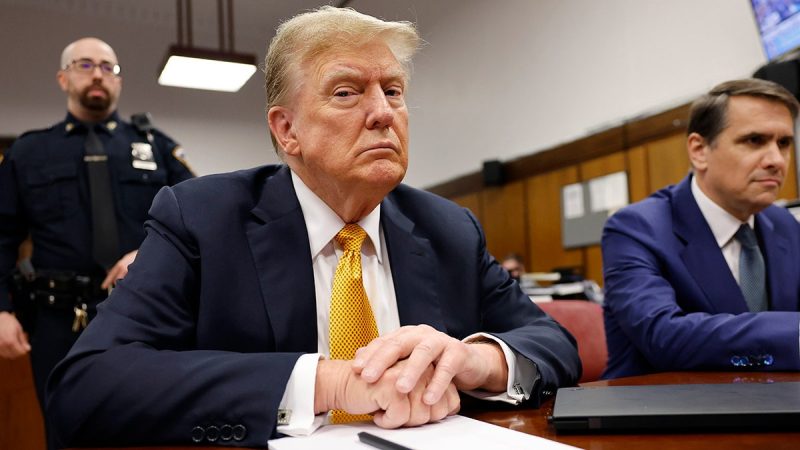In recent times, the political landscape in the United States has been tumultuous, with the impending criminal trial of former President Donald Trump casting a significant shadow over the upcoming presidential election. The possibility of a guilty verdict in Trump’s trial raises crucial questions about the impact it could have on the election and the broader implications for the country’s democratic process.
One of the key concerns surrounding the potential outcome of Trump’s trial is whether a criminal conviction would disqualify him from running for office. While the U.S. Constitution does not explicitly bar individuals with criminal records from holding public office, a conviction could have serious implications for Trump’s candidacy. Legal experts argue that a guilty verdict in a high-profile criminal trial could significantly damage Trump’s reputation and credibility, making it difficult for him to garner public support in a future election campaign.
Moreover, the political fallout from a Trump conviction could further divide an already polarized nation. Trump’s ardent supporters, who have remained loyal to him despite numerous controversies and scandals, may view a guilty verdict as a politically motivated attack and rally around him even more fiercely. This could deepen the existing divisions within American society and perpetuate a climate of distrust and animosity between different political factions.
On the other hand, a guilty verdict in Trump’s trial could also have positive repercussions for the democratic process in the United States. It would serve as a powerful reminder that no individual, regardless of their status or influence, is above the law. Holding public officials accountable for their actions sends a strong signal that the principles of justice and accountability are fundamental to the functioning of a healthy democracy.
Furthermore, a conviction in Trump’s trial could prompt a broader reckoning within the Republican Party. The party has been deeply divided in the aftermath of Trump’s presidency, with competing factions vying for control and influence. A criminal conviction for Trump could force party leaders to confront their complicity in enabling his behavior and pave the way for a new era of accountability and integrity within the GOP.
In conclusion, the verdict in Trump’s criminal trial has the potential to upend the upcoming presidential election and reshape the political landscape in the United States. While the implications of a guilty verdict are uncertain and open to interpretation, it is clear that the outcome of Trump’s trial will have far-reaching consequences for the country’s democratic institutions and its future trajectory. As the trial unfolds, all eyes will be on the courtroom as the fate of one of the most controversial figures in American politics hangs in the balance.




























